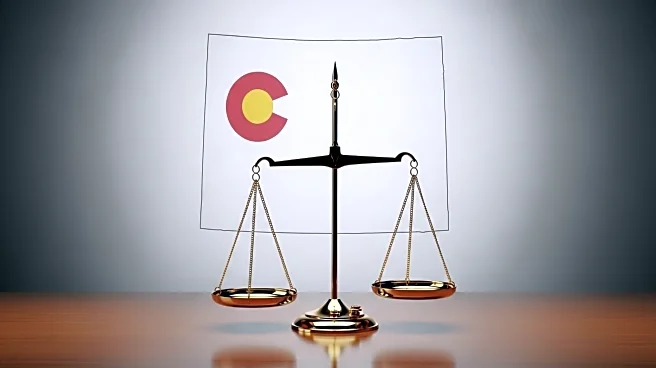What is the story about?
What's Happening?
The executive director of the Governor's Office of State Planning and Budgeting in Colorado has indicated that the state faces a 50-50 chance of entering a recession in 2026. This assessment comes amid broader economic uncertainties and potential challenges that could impact the state's financial stability. The statement reflects concerns about economic trends and the potential for downturns that could affect various sectors within Colorado.
Why It's Important?
The possibility of a recession in Colorado could have significant implications for the state's economy, affecting industries, employment, and public policy. A recession could lead to reduced state revenues, impacting budget allocations and public services. Businesses may face challenges in maintaining operations and workforce levels, potentially leading to increased unemployment. The state's economic outlook may influence policy decisions and strategic planning to mitigate potential impacts.
What's Next?
State officials and policymakers may need to prepare for potential economic challenges by developing strategies to support economic resilience and stability. This could involve measures to stimulate growth, support businesses, and protect vulnerable populations. Monitoring economic indicators and trends will be crucial in assessing the likelihood of a recession and implementing appropriate responses.
Beyond the Headlines
The potential for a recession in Colorado highlights broader economic uncertainties and the need for proactive planning and policy measures. It underscores the importance of economic diversification and resilience in facing potential downturns. Long-term strategies may be needed to address systemic economic challenges and support sustainable growth.















